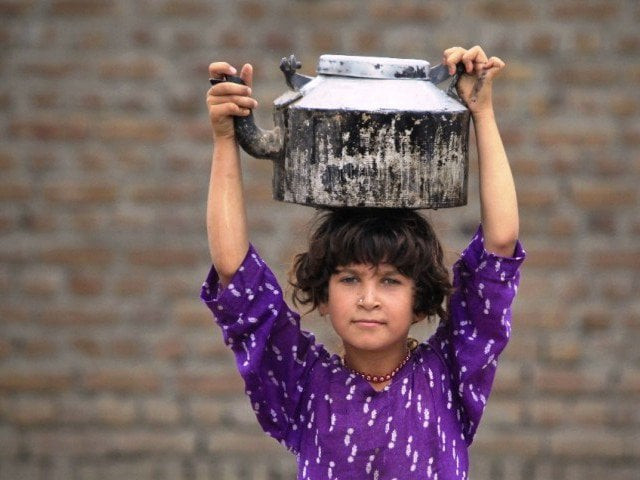Child labour elimination from Pakistan's textile sector stressed
Official says concerted efforts needed to eradicate child labour from unorganised sector

Pakistan must counter the negative propaganda about child labour in the country’s textile sector in order to achieve a big jump in textile exports, said Employers Federation of Pakistan (EFP) President Ismail Suttar.
Speaking at a seminar organised jointly by the Faisalabad Chamber of Commerce and Industry (FCCI), International Labour Organisation (ILO) and EFP, Suttar said a campaign had been launched against Pakistan that it was using child labour in Sialkot’s football industry.
He added that efforts had been made to eliminate child labour but now the same issues were being highlighted again by some elements to deal a blow to the country’s exports.
“We have a unique chance to enhance our exports to the European Union (EU) by exploiting the GSP Plus status.”
He pointed out that Pakistan was facing new challenges to the continuity of GSP Plus facility. Earlier, the UK was a leading and influential member of the EU but “now the situation is different as the UK is no more a member of the bloc and, hence, we may face difficulties in getting the EU to continue the facility”, he said.
Suttar said, “We must become part of the strategy to eliminate child labour from the textile sector by the year 2030.”
He elaborated on the Multinational Enterprises Programme and informed the audience that with better training and skills more job opportunities could be created for competent workers.
Talking about “Look Africa” initiative, he said it was disheartening to note that Pakistan’s share was only $1 billion in Africa’s imports of $200 billion.
He said India was exporting sufficient quantity of spices while Pakistan’s share in the sector was quite negligible.
The EFP president stressed that there was a need to add maximum value to the raw material in order to earn foreign exchange. “Through value addition, we can earn $15-20 billion in additional foreign exchange over the next five years,” he stressed.
Suttar added that tourism was yet another important segment of the economy through which the country could earn sizable foreign exchange.
“In this connection, our study team is compiling a comprehensive booklet in which every important tourism spot has been identified with its main attraction to attract local as well as foreign tourists.”
Speaking on the occasion, FCCI President Rana Muhammad Sikandar Azam said there was no child labour in the organised textile sector. However, in the unorganised sector there may be child labour and “we must make concerted efforts to eliminate it”, he added.
He said Sindh was already implementing a proposal to give 40% representation to employers, 40% to employees and 20% to the government in the board of social security, but it was still being headed by the minister concerned.
He said chairmen of all boards of organisations, being managed with the contribution of employers, must be from them.
Published in The Express Tribune, August 25th, 2020.
Like Business on Facebook, follow @TribuneBiz on Twitter to stay informed and join in the conversation.



















COMMENTS
Comments are moderated and generally will be posted if they are on-topic and not abusive.
For more information, please see our Comments FAQ